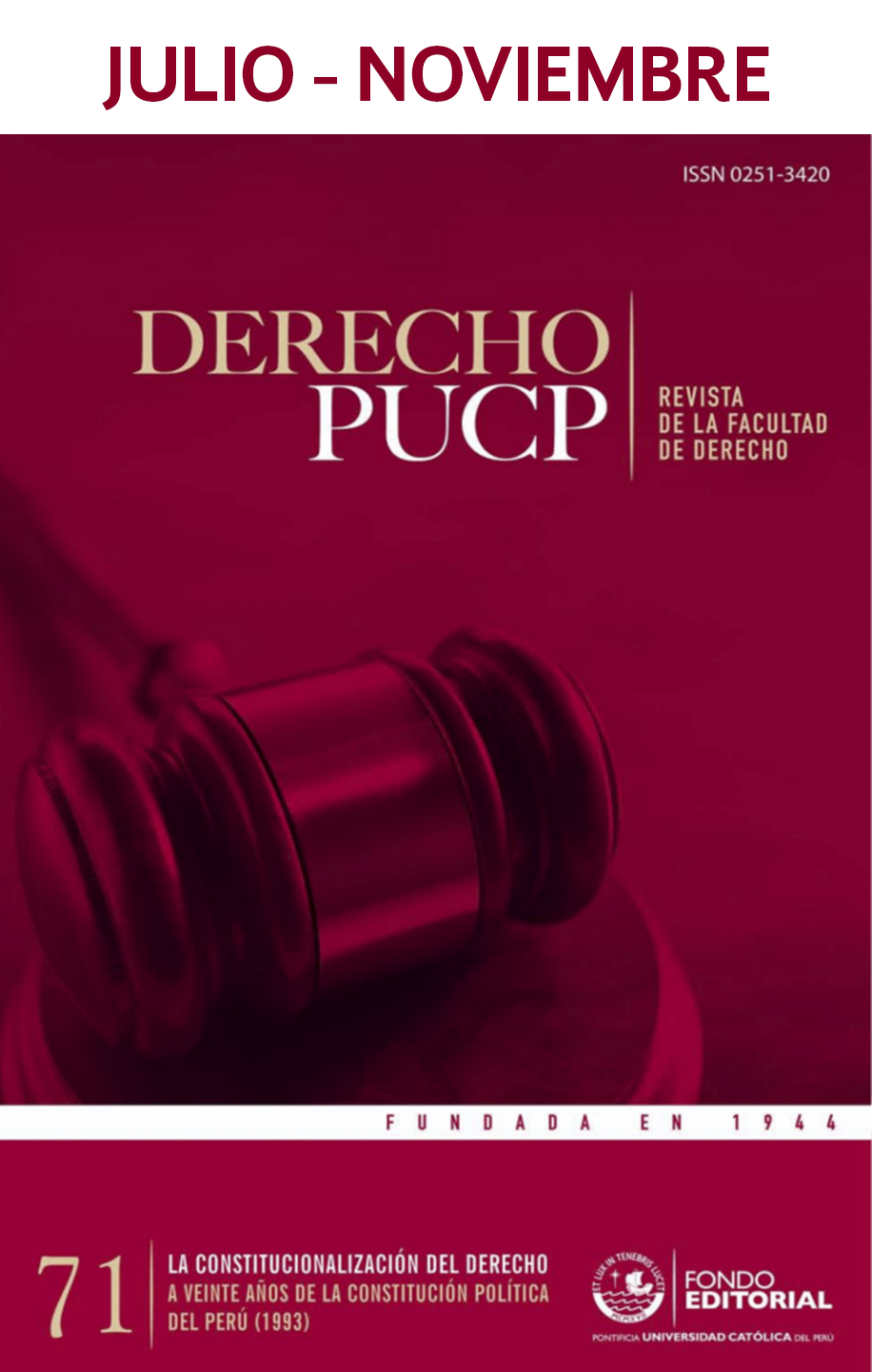Constitucionalización del derecho internacional de las inversiones: los casos de la expropiación indirecta y el trato justo y equitativo
DOI:
https://doi.org/10.18800/derechopucp.201302.009Palabras clave:
derecho internacional de las inversiones, constitucionalización, trato justo y equitativo, expropiación indirecta, rule of law, derecho internacional de los derechos humanos, coherencia, interpretación coherente, clima de inversiónResumen
Este trabajo tiene como objeto explorar el impacto que tienen las normas del derecho internacional de las inversiones, en específico aquellas de los capítulos de inversiones de los Tratados de Libre Comercio celebrados por el Perú, en el derecho constitucional económico. En concreto, se pretende demostrar lo siguiente: (i) el derecho internacional de las inversiones es parte del Ordenamiento Jurídico del Perú; (ii) las disposiciones de este derecho son obligatorias y deben aplicarse a nivel interno, y (iii) este derecho debe interpretarse e implementarse de manera coherente con el resto del ordenamiento interno y con las obligaciones internacionales del Perú. Esta interpretación concordada del derecho de inversiones y la Constitución económica tendrá un impacto positivo en la racionalización de la actuaciónde los órganos estatales, evitando arbitrariedades cuando sus medidas puedan afectar a un inversionista. De esta manera mejorará el clima de inversiones, el cual es un elemento necesario para lograr el desarrollo sostenible del país.
Descargas
Descargas
Publicado
Cómo citar
Número
Sección
Licencia
Derechos de autor 2016 Derecho PUCP

Esta obra está bajo una licencia internacional Creative Commons Atribución 4.0.




